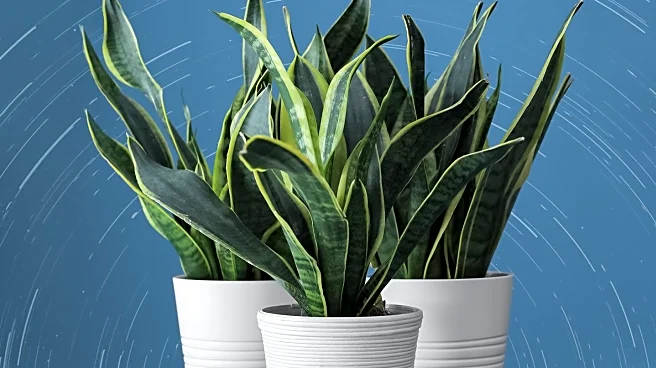What's Happening?
CNET has identified ten houseplants that are effective in purifying indoor air and thriving in low-light conditions. These plants, including the marble queen pothos, peace lily, and English ivy, are known for their ability to remove harmful volatile organic compounds (VOCs) such as formaldehyde and benzene. The article emphasizes the benefits of incorporating these plants into home environments to improve air quality naturally. While houseplants alone cannot replace air purifiers, they offer a cost-effective and aesthetically pleasing way to enhance indoor air quality.
Why It's Important?
The increasing awareness of indoor air quality and its impact on health has led to a growing interest in natural air purification methods. Houseplants offer a simple and accessible solution for individuals looking to improve their living environments without investing in expensive air purifiers. This trend reflects a broader movement towards natural and sustainable living practices. Additionally, the use of houseplants can contribute to mental well-being by creating a calming and visually appealing atmosphere.
What's Next?
As interest in natural air purification continues to grow, there may be further research and development in enhancing the air-cleaning capabilities of houseplants. Innovations such as genetically modified plants or microbiome-charged systems could become more prevalent, offering even more effective solutions for improving indoor air quality. Consumers may also see an increase in the availability and variety of air-purifying plants in the market.
Beyond the Headlines
The integration of houseplants into home decor not only improves air quality but also supports biodiversity and ecological awareness. This practice encourages individuals to connect with nature, even in urban settings, fostering a greater appreciation for the environment and sustainable living.










